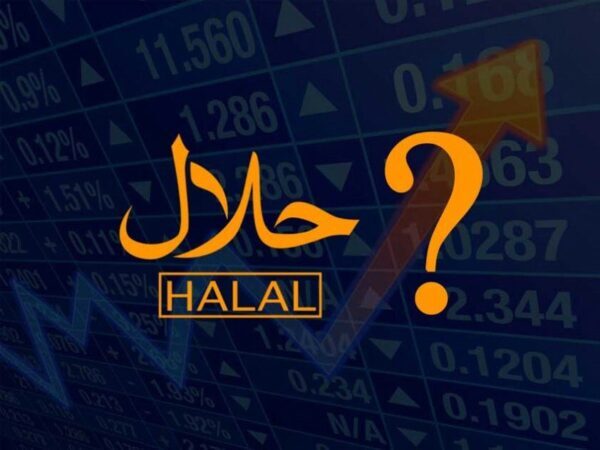Halal Investment in India: Sharia-compliant investment opportunities, Halal Stocks and Equities, Halal Real Estate Investment, Islamic Mutual Funds
Introduction
The last few years, there has been a growing interest in ethical and socially responsible investment options across the world. One such area that has gained prominence is Halal investment, which caters to the financial needs of Muslims who seek to invest their money in accordance with Islamic principles. This article explores the concept of Halal investment and its significant growth in India.
Understanding Halal Investment

Halal investment refers to investment practices that comply with Islamic principles and guidelines. In Islam, certain activities and industries are considered prohibited (Haram), such as those related to alcohol, gambling, pork, and interest-based transactions. Halal investments, on the other hand, involve ethical businesses and ventures that are beneficial to society.
Principles of Halal Investment
Halal investment is guided by several principles, including:
1- Prohibition of Riba (Interest): Islamic finance strictly prohibits the charging and receiving of interest, as it is considered exploitative and harmful.
2- Avoidance of Haram Activities: Investments in industries such as alcohol, tobacco, gambling, and adult entertainment are strictly prohibited.
3- Ethical and Socially Responsible Investments: Halal investments must contribute positively to society and avoid harmful practices.
4- Risk and Profit Sharing: Islamic finance promotes risk-sharing and fair profit distribution between investors and entrepreneurs.
The Growth of Halal Investment in India
India, with its substantial Muslim population, has witnessed a significant surge in Halal investment opportunities. Muslims in India are increasingly seeking financial products that align with their religious beliefs, giving rise to a demand for Sharia-compliant investment options.
Types of Halal Investments
1. Halal Stocks and Equities
Investing in stocks of companies that comply with Islamic principles is one of the popular ways of Halal investment. These companies are typically involved in sectors such as technology, healthcare, and renewable energy.
Invest and trade with Kite by Zerodha – India’s biggest stock broker offering the lowest, cheapest brokerage rates commodity trading, equity and mutual funds.
India’s largest retail stockbroker.
2. Halal Real Estate Investment
Investing in real estate properties that generate income through permissible means, such as rental income from Halal tenants, is a common choice for Halal investors.
3. Islamic Mutual Funds
Islamic mutual funds pool investments from various individuals and invest in a portfolio of Sharia-compliant assets, providing diversification and professional management.
4. Sukuk (Islamic Bonds)
Sukuk are Islamic bonds that generate returns based on tangible assets, complying with Islamic principles of interest-free financing.
Islamic Banking and Finance in India
1. Sharia-Compliant Banking
Islamic banking institutions in India offer financial services that adhere to Islamic principles, such as interest-free loans and profit-sharing arrangements.
2. Islamic Microfinance
Islamic microfinance institutions provide financial services to small-scale entrepreneurs and individuals, focusing on ethical and equitable financing.
Factors Influencing the Success of Halal Investment in India
1. Government Support and Regulations
The Indian government’s support for Islamic finance initiatives and the establishment of regulatory frameworks have bolstered the growth of Halal investments.
2. Increasing Awareness and Education
As awareness about Halal investment opportunities increases, more individuals are willing to explore and embrace this ethical investment approach.
3. Growing Muslim Population and Their Financial Needs
India’s growing Muslim population seeks financial products that resonate with their religious beliefs, driving the demand for Halal investment options.
Challenges and Solutions in Halal Investment
1. Finding Ethical Investment Opportunities
Identifying Halal investment opportunities that align with Islamic principles can be challenging, but specialized financial advisors can assist in this regard.
2. Addressing Market Volatility
Like any investment, Halal investments are subject to market fluctuations, necessitating a long-term approach to mitigate risks.
3. Lack of Awareness and Misconceptions
A lack of awareness and misconceptions about Halal investments can deter potential investors, emphasizing the need for educational campaigns.
The Role of Financial Advisors in Halal Investment
Experienced and knowledgeable financial advisors play a crucial role in guiding investors toward Halal investment options that suit their financial goals and values.
How to Get Started with Halal Investment
To begin with Halal investment, individuals should conduct thorough research, seek advice from experts, and align their investment choices with their ethical values.
Case Studies of Successful Halal Investments in India
The success stories of individuals and businesses who have embraced Halal investments in India serve as inspiring examples for potential investors.
Halal Investment and Socially Responsible Investing (SRI)
Halal investment aligns with the principles of Socially Responsible Investing (SRI) by promoting ethical practices, sustainability, and positive social impact.
The Future of Halal Investment in India
The future of Halal investment in India appears promising, with increasing awareness and support from the government contributing to its growth.
Conclusion
Halal investment in India offers a unique opportunity for Muslims to grow their wealth ethically and responsibly. By adhering to Islamic principles, investors can support businesses that align with their values and contribute positively to society. As the Halal investment landscape continues to evolve, more investors are expected to embrace this ethical and rewarding financial approach.
FAQs
Q1: Is Halal investment limited to Muslims only?
Ans : No, Halal investment principles can be followed by anyone seeking ethical and socially responsible investment options.
Q2: Are Halal investments risk-free?
Ans : Like any investment, Halal investments carry risks, but adhering to Islamic principles ensures ethical practices.
Q3: Can Halal investment yield competitive returns?
Ans : Yes, Halal investments can provide competitive returns while adhering to ethical guidelines.
Q4: What are the benefits of Halal real estate investment?
Ans : Halal real estate investment offers a stable source of income and the potential for property appreciation
Q5: How can I find Halal mutual funds?
Ans: Many financial institutions offer Halal mutual funds, and consulting a Sharia-compliant financial advisor can help in finding suitable options.

Can u plz suggest the halal mutual fund
Yes, please refer below link
https://financialfreedomma.com/halal-mutual-funds-india-sharia-compliant/